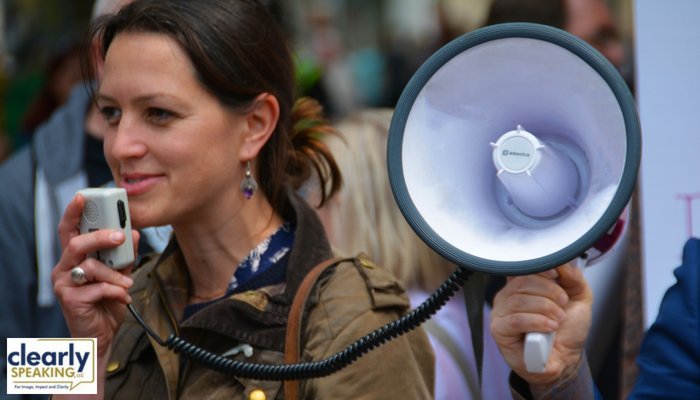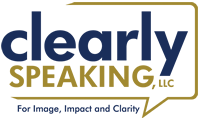
How a Software Engineer Convinced His Manager To Increase the Budget
 Do you express enthusiasm for aspects of your work that you notice others don’t seem to share? If so, you might encounter sales pitches or meetings where you feel like colleagues or managers interrupt you or miss your point. Maybe you feel it’s hard to inspire others or persuade them of your plans to move your company forward. You aren’t alone if this happens to you at the office!
Do you express enthusiasm for aspects of your work that you notice others don’t seem to share? If so, you might encounter sales pitches or meetings where you feel like colleagues or managers interrupt you or miss your point. Maybe you feel it’s hard to inspire others or persuade them of your plans to move your company forward. You aren’t alone if this happens to you at the office!
In the workplace, we all have biases and filters. Sometimes these biases will prevent your manager and team members from understanding your messages. However, recognizing these biases and filters can actually help you make an emotional appeal to all of your audiences, so that they see your point of view.
At ClearlySpeaking, we teach our clients to use biases to their advantage to speak concisely in every professional and personal situation. Here is an example of our client Dan, who we equipped with a strategy to tailor sales pitches to his manager Christine so he could get more money for his projects.
The Problem
Dan was a meticulous, knowledgeable software engineer at a large tech company. When he spoke to colleagues, clients, and software users, he constantly mentioned programming jargon terms. Dan was developing an expensive new software update he believed would bring his company to new markets. However, he had difficulty sharing the value proposition. In fact, when he mentioned his work on the update, colleagues often say “let’s talk details later” or “sounds great, Dan, but I’m not a coder.”
Perceptions/Response
Dan began to realize that his team members did not understand his key points about the benefits of the software update. For months, when Dan presented on the update in weekly code review meetings, his supervisor Christine seemed hesitant to move forward with it. Christine had said that the update sounded so complicated that ultimately it may be too costly to implement.
The Goal
Dan’s goal was to persuade Christine that the software update would lead to good long-term revenues and that he needed one more month and a 50% budget increase to complete the project.
Dan asked himself three questions:
1. What is important to Christine?
2. What are the potential filters and biases that we both have?
3. What’s in it for her about the initiative that would appeal to her and resonate with her values? In order to get her to see his point of view, Dan needed to think about these questions first.
Enter your text here…
The Audience (Christine)
Christine started as a user experience specialist at the company, spending years troubleshooting bug fixes for software customers over chat and phone. Christine often asked team members, “But what will this do for our users?”
Dan’s Potential Filters and Biases
Dan was extremely proud that he had self-taught himself Java, CSS, PHP, and other programming languages. As a result, he was eager to share his expertise with others. Dan wished that people didn’t care so much about the bottom line. Dan considered himself a perfectionist. He liked to read manuals about how his new gadgets work.
Christine’s Potential Filters and Biases
Christine was a long distance runner and valued efficiency. Before working in the tech industry, Christine was a middle school P.E. teacher. She valued being “straight to the point” in her professional life, and at times found it challenging to comprehend many of the acronyms and buzzwords she heard in the tech world.
Dan realized after thinking about the way she processes information, that he had been approaching the situation all wrong. The fact that she liked straightforward communication and that buzzwords were challenging, he needed to approach her differently.
Dan’s Sales Pitch
Because of our competitors’ large presences in China and India, we are going to need to do something bold and courageous to get new markets’ attention. The current software update I have been working on will do just that. It has three things going for it.
1. It’s extremely innovative.
2. In early testing with users, customers have commented that it is easy to use.
3. We are making fast progress and have been able to fix all issues that have come up.
We are excited that the update is moving along very well and has so much potential. We need to increase our budget a bit to continue. Would you like to hear more?
The fact that Dan didn’t go into a single detail about the project but rather he stayed on point to the evidence that the update was successful, Christine was very interested.
The Outcome
Dan’s last line, “Would you like to hear more?”, also had the benefit of asking permission to explain more if Christine needed more information. But on the other hand, Christine may know enough already, and tell Dan, “I don’t need more info. Do what it takes to make this happen.”

In Dan’s case, that was Christine’s response. And because in this case she was so willing, no time was wasted for either Dan or Christine. Had she wanted more info, Dan would have responded to her questions thoughtfully and again appealed to her needs. All the while, he used short responses.
********
